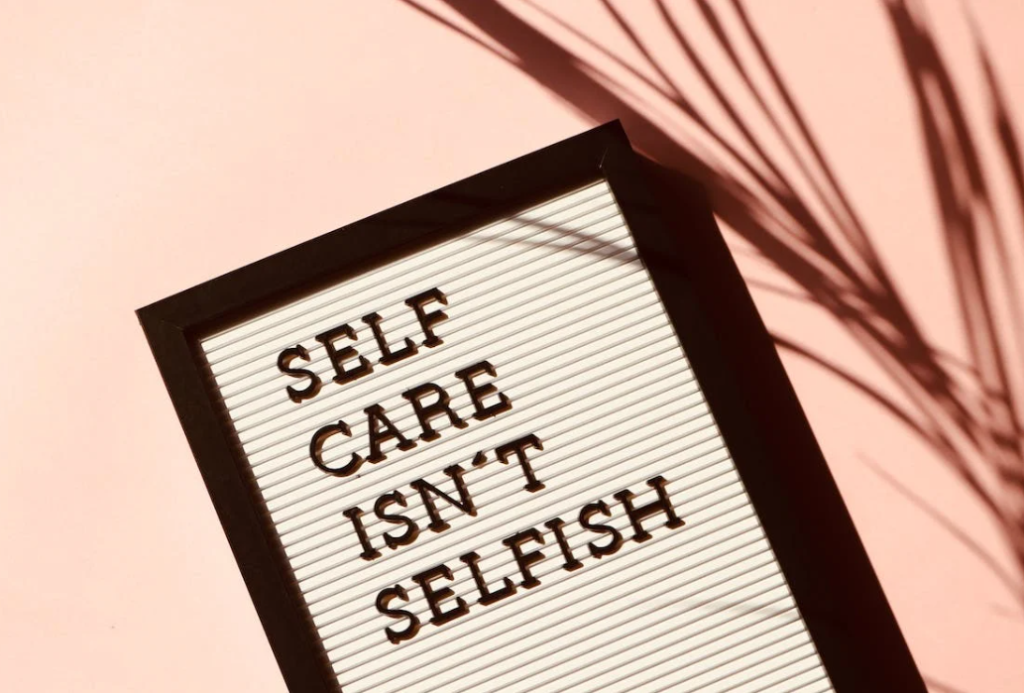How to Achieve Self-Love
Learn how to love oneself and appreciate one’s own needs and happiness.

Selfpause Affirmation App
Download the app to get 1,000’s of affirmation meditations and everything you need to write, record and listen to your own.
Self Love is the appreciation of one’s own needs and happiness. It is a basic human need but is often viewed as a moral flaw. It is also associated with conceit, amour-propre, and narcissism. Nevertheless, it is possible to develop Self Love.
Self-compassion

Self-compassion and self-love are two aspects of the same concept, and both are crucial to our overall health and happiness. Self-compassion is the ability to be kind to oneself, particularly when we face personal failures. This kind of attitude can reduce feelings of anxiety and depression. It also affects our ability to have relationships with other people.
Self-compassion improves the capacity to cope with negative emotions, and it is often associated with greater levels of self-confidence and self-esteem. It also promotes an optimistic outlook and an increase in happiness. Furthermore, self-compassion fosters greater motivation to take action, such as exercising.
In a study by Juliana Breines and Serena Chen, participants were asked to write a letter to themselves that described a recent action they felt guilty about. Participants were randomly assigned to one of three conditions – the first condition was to write a letter to themselves describing their actions as if they were writing to a caring friend.
The first step to self-compassion and self-love is to assess the level of each. To do this, you can use a scale, reflect on your thoughts, or simply talk to yourself to see where you are. From there, you can work out how to get to your desired level of self-compassion.
Practicing self-compassion is an ongoing process. It takes practice and mindfulness. You can make a list of ways to improve your self-compassion and self-love. Writing your letter to yourself is one of the best ways to foster healthy self-compassion. Try it at least once a month to start.
Self-acceptance

Self-acceptance and self-love are two key aspects of emotional well-being. Self-acceptance involves seeing and accepting all aspects of yourself, including imperfections. Self-love requires that you see yourself as unique and human, and not as the product of someone else’s opinion.
Developing self-acceptance is a process that takes practice and time. The first step is to understand and practice compassion towards yourself and others. You can begin by imagining yourself in a past time when you were a completely different person than you are now. This exercise can help you see your strengths and move on from the past.
Self-acceptance can help you overcome your fears of failure and rejection. When you feel unlovable or unworthy, you might try to avoid situations that might cause you to fail. If you are unable to face yourself in a situation, try pretending to be someone you are afraid to be with, such as your best friend.
One exercise that can help you cultivate self-acceptance is an exercise created by the Australian Department of Education and Training. It’s part exercise and part lesson. It’s a great classroom activity and involves stretching and reflection. You can do it with your student group. This is a powerful exercise and can help them see the positive aspects of themselves and other people.
A strong sense of self-acceptance allows you to invest in your health and happiness. You may invest in healthy food, satisfying relationships, or activities that make you feel good. You may also feel little to no guilt about doing nice things for yourself. With this level of self-acceptance, you can develop an appropriate balance between resting and pursuing a healthy life.
Self-compassionate words

Self-compassionate words help us to understand and accept ourselves. These words help us to release compassion and kindness into the world. They help us to be less stressed and to feel happier. Self-compassionate words can also help us cope with negative thoughts. We can practice using them to communicate with others, especially if we have children.
Self-compassion is an important part of a happy and well-adjusted child. It helps us to understand that our feelings are valid and that we can connect with others. Self-compassion is similar to empathy, which helps us to understand that we are not the only ones experiencing these feelings and are not alone in them.
Self-compassion is an important step in healing from a depressive episode. If you are struggling to cope with a depression episode, seek support from others. Read books or articles that encourage positive thinking. Whenever you are able, share a meal with someone. Self-compassion requires effort, but it has a great payoff.
Self-compassion may seem foreign to you at first. Self-critical thoughts can take up a lot of mental space. If you allow your mind to be occupied with these thoughts, they can lead to a place of hopelessness and despair. Self-compassion can help you cope with both challenging and negative emotions and move on with a positive intention.
One of the best ways to practice self-compassion is to acknowledge suffering in the present moment. For example, when you feel pain or stress, you can simply say, “This hurts” or “This is stress.” By practicing self-compassionate words, you’ll be able to express compassion for others and yourself when you need it most.
Self-loving words

Speaking self-loving words to yourself can make you feel better about yourself. Your language influences how you act. Try to use only positive words to talk to yourself. If you find yourself thinking about negative words, challenge them and make an effort to think positively. Eventually, positive thoughts will become more natural and will be more likely to inspire healthy actions.
It’s not easy to love yourself, and it is important to learn to love yourself. It takes time and patience, but it is definitely possible. There are many self-love quotes from artists, authors, and spiritual leaders to help you get started. Take a look at some of these quotes and see which one resonates with you.
Self-love is an important component of a healthy relationship with others. It’s the foundation of all other loves. It’s important to love yourself and accept all of who you are. It’s difficult to feel comfortable with another person if you don’t feel good about yourself. Having low self-esteem is like driving a car without a hand brake. It’s hard to feel good when you don’t like yourself, and it doesn’t make you happy.
Recipes for self-love

Achieving a certain amount of self-love doesn’t have to be difficult. You just need a little motivation and a little time to find your inner beauty. There are many ways to make this process more fun and rewarding. If you’re looking for some motivation, try following a self-love Instagram account. Follow Alison Rachel, an Amsterdam-based artist who creates empowering images for women.
Alison Rachel’s artwork and message are a powerful way to empower other women and celebrate your own uniqueness. She creates a world in her book that is full of women who celebrate and love themselves. The 21st century has brought new opportunities for women’s empowerment, and social media allows us to virtually support movements and ideas. The message in “Recipes for Self Love” is not only about self-love but also about being yourself and exploring your identity.
This book is filled with empowering quotes and mantras that can be used to boost your self-esteem. It also contains several walks through the process of self-love. By incorporating the recipes into your daily life, you can begin breathing in positive vibes every day. You’ll be able to enjoy your life more and achieve more in a happier, healthier you.
A self-love recipe consists of ingredients that you use every day. The goal is to use ingredients that align with your highest self. During this process, make sure you are kind to yourself. If you find that some ingredients aren’t working for you, try again the next day.
Our Top FAQ's
Some practical strategies for improving self-love and self-acceptance include engaging in self-care activities, setting and working towards achievable goals, practicing gratitude, surrounding yourself with supportive and positive people, and seeking help from a mental health professional if needed. Additionally, it can be helpful to challenge negative self-perceptions and focus on your strengths and positive qualities.
To learn to be more compassionate and understanding towards yourself, try using self-compassion exercises and phrases, such as “I am doing the best I can,” “I am worthy of love and respect,” or “Everyone makes mistakes and it’s okay to be imperfect.” It can also be helpful to practice mindfulness, which involves paying attention to your thoughts and emotions in the present moment without judgment.
Recognizing and challenging negative self-talk can be a difficult process, but it’s an important step towards improving self-love. One technique that can be helpful is to identify and write down your negative self-thoughts, then reframe them in a more positive and realistic way. For example, instead of thinking “I’m not good enough,” try thinking “I am doing the best I can and that is enough.” You can also try to practice replacing negative self-talk with positive affirmations or self-compassion phrases.
Setting healthy boundaries is an important aspect of self-love, as it allows you to assert your needs and values and protect your emotional well-being. To set healthy boundaries, it’s important to communicate your needs and limits clearly and assertively, without being aggressive or passive-aggressive. You can also try saying “no” when you feel overwhelmed or unable to take on additional responsibilities.
Forgiving yourself for past mistakes can be a difficult but important step towards cultivating self-love. To practice self-forgiveness, try to let go of any guilt or shame you may be feeling about past events. Remember that everyone makes mistakes and that it’s okay to be imperfect. You can also try writing a letter of self-forgiveness or talking to a trusted friend or therapist about your feelings.
